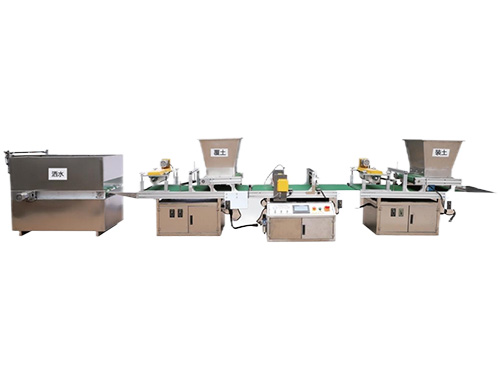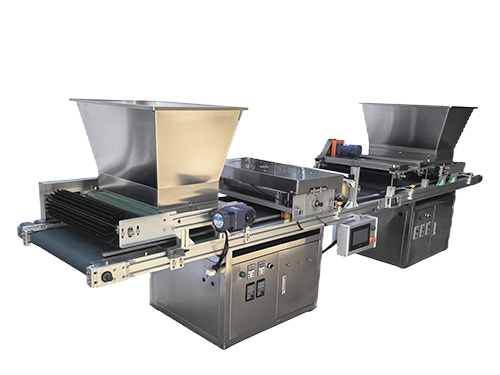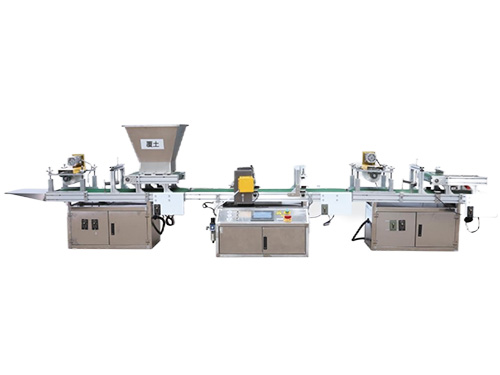The Close Connection Between Seedling Trays and Seedling Growth: How Much Do You Know?
2025-04-22 16:32:57
I. Introduction
Seedling trays are not merely containers for holding seeds; they are also crucial carriers that determine the health of seedlings. From root development to disease prevention, their design and usage directly impact the success of seedling cultivation. This article delves into the relationship between the two to help you master the core of scientific seedling cultivation.
II. Basic Understanding of Seedling Trays
2.1 Definition and Function
Seedling trays are standardized containers with individual compartments that enable centralized cultivation of seeds. They offer functions such as root control, moisture retention, and disease isolation.
2.2 Evolution Trends
From traditional wooden shallow trays to modern plastic plug trays, materials have upgraded to more durable options. Structural designs have also evolved, featuring specialized designs such as self-watering and deep-root-adapting trays to meet diverse planting needs.
III. Three Major Impacts of Seedling Trays on Seedling Growth
3.1 Efficiency Improvement: The Value of Standardized Design
Uniform specifications are compatible with seeding machines and transplanting equipment, saving labor through batch operations. Individual compartments simplify sorting processes and shorten the seedling cultivation cycle.
3.2 Health Guarantee: Advantages of Space and Isolation
Root Development: Independent compartments prevent root entanglement, and deep trays ensure vertical growth of the main root.
Disease Prevention: Physical isolation blocks the spread of pathogens, reducing the risk of damping-off and blight.
3.3 Management Convenience: Flexible Control of Growth Environment
Stackable and movable features facilitate temperature and humidity adjustments. Compartment designs support categorized maintenance of seedlings, precisely matching growth needs.
IV. Scientific Usage: Key to Strengthening the Growth Connection
4.1 Selection and Matching Principles
Vegetable Seedlings: Choose deep trays for deep-rooted vegetables and shallow trays for leafy vegetables.
Flower Seedlings: Use small-hole trays for small-flowered plants and large-hole deep trays for large-flowered plants.
4.2 Sowing and Maintenance Tips
Substrate Mix: Combine peat moss, vermiculite, and perlite for a balance of water retention and breathability.
Environmental Control: Adjust lighting (6-8 hours daily) and temperature (20-25°C for heat-loving plants) according to plant characteristics.
V. Negative Impacts of Improper Maintenance on Growth
5.1 Lack of Cleaning and Disinfection
Residual substrate breeds mold, and undisinfected trays easily lead to secondary infections, weakening seedling resistance.
5.2 Structural Defects
Clogged drainage holes cause waterlogging and root rot, while broken compartments increase the risk of root damage, affecting post-transplant survival rates.
VI. Analysis of Common Problems and Their Relationship with Trays
6.1 Seedling Elongation
Shallow trays restrict root expansion, and insufficient light can lead to excessive stem and leaf growth.
6.2 Poor Root Development
Inappropriate substrate or overly shallow trays result in root curling and hindered lateral root development.
VII. Conclusion: Choose and Use Wisely for Worry-Free Growth
The relationship between seedling trays and seedling growth is closely intertwined. From selecting the right tray to scientific maintenance, every detail determines the success of cultivation. Master the key points in this article to turn seedling trays into the "golden cradles" for robust seedling growth, embarking on a new journey of efficient cultivation!

The CNC Seed Braiding Machine is a high-precision, fully automated agricultural equipment s...

It adopts electrical integration and can be started by pressing the fully automatic button ...

The XP750 seeder has stable performance, excellent product quality, simple and convenient o...

It adopts electrical integration and can be started by pressing the fully automatic button ...



